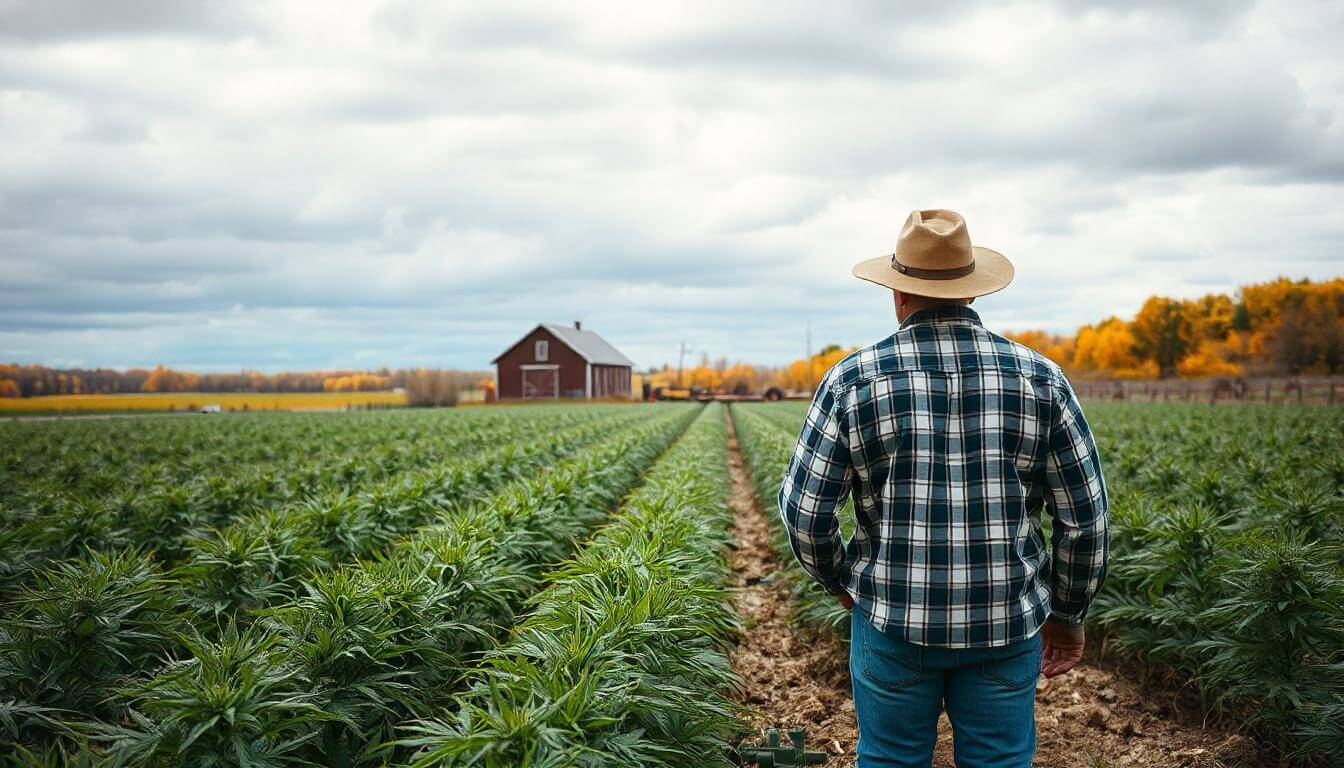The recent closure of Michigan’s industrial hemp program marks a significant shift for the state’s hemp cultivators and processors. This change, overseen by the U.S. Department of Agriculture (USDA), promises to revitalize hemp farming across Michigan. With potential benefits, including reduced fees and simplified procedures, there is much to discuss about what this means for local farmers and the broader implications for the hemp industry.
A fresh start under USDA oversight
As of 2025, Michigan’s hemp operations will fall directly under federal jurisdiction following the cessation of state-level oversight by the Michigan Department of Agriculture and Rural Development (MDARD). The transition follows the passage of Michigan House Bill 5977, which abolishes the state’s industrial hemp fund. This move transfers regulatory responsibilities entirely to the USDA and streamlines the process for local hemp producers.
According to Blain Becktold, President of iHemp Michigan, collaboration with the USDA is anticipated to be beneficial for local hemp farmers. One major advantage includes lower operational fees, which previously stood at $1,350 per permit under state regulation. By eliminating these overhead costs, the new structure aims to alleviate financial burdens for farmers, encouraging wider participation in hemp cultivation.
Enhanced opportunities from federal programs
The transition to federal management unlocks access to numerous resources that were previously hard to obtain under the state-run program. Farmers can now leverage federal benefits such as crop insurance, disaster assistance, and various grant programs designed specifically to support agricultural ventures. These programs provide much-needed security and financial backing, which could spur renewed interest and investment in hemp farming.
Overcoming previous hurdles in regulatory compliance is another expected benefit. Many states, including Michigan, faced challenges aligning their hemp programs with the USDA’s stringent protocols, particularly in THC testing and reporting requirements. Operating under a unified federal framework simplifies compliance, allowing farmers to focus more on production than navigating complex regulations.
Historical context and legislative milestones
The journey of hemp legalization and regulation in the United States provides valuable context for understanding the current developments. Initially, the 2014 Farm Bill granted state agricultural departments the authority to implement pilot programs for hemp cultivation. These early initiatives laid the groundwork for more comprehensive legislation.
The 2018 Farm Bill was a game-changer, legalizing hemp nationwide and giving the USDA overarching control over its production. States were given the option to manage their own hemp programs, provided they met federal criteria, or opt for federal oversight. Michigan initially developed its regulatory framework in line with these guidelines, but the evolving landscape required continuous adjustments.
Michigan’s evolving hemp regulations
The Michigan Industrial Hemp Research and Development Act formalized the state’s commitment to a structured hemp program. This act was aligned with the changing national policies, leading to the creation of Michigan’s Industrial Hemp Growers Act in 2021. However, managing dual regulatory systems proved cumbersome for many states, including Michigan.
Governor Gretchen Whitmer’s decision to consolidate the regulation of both hemp and marijuana processing, distribution, and sales under a newly named Cannabis Regulatory Agency was an effort to streamline operations and cut costs. Licensing for hemp cultivation, however, remained with MDARD until the recent transfer to the USDA. This strategic plan aimed to better allocate resources while providing clearer regulatory guidance for producers.
Implications for Michigan’s hemp industry
The transition to USDA oversight is likely to have profound impacts on Michigan’s hemp industry. As more uses for industrial hemp emerge in sectors like construction and animal feed, reducing barriers to entry becomes crucial. Simplified processes and lower costs are key factors in attracting new players to the market and supporting existing ones.
Blain Becktold notes that this restructuring has the potential to reignite interest in hemp farming within the state. As the industry adapts to federal guidelines, there’s hope that increased efficiency and financial incentives will bolster Michigan’s standing in the national hemp market. The removal of high state fees is just one step toward fostering a more vibrant and competitive hemp industry.
Prospects for farmers and processors
With the USDA’s direct involvement, farmers in Michigan could witness a period of transformation. Access to essential services and the easing of regulatory compliance are expected to provide a more stable and supportive environment for cultivating hemp. Producers who were previously deterred by state-imposed restrictions may find renewed motivation to explore the diverse applications of hemp in various industries.
Furthermore, the global trend towards sustainable and eco-friendly products places industrial hemp in a favorable position. The crop’s versatility and minimal environmental impact make it an attractive option for innovation in multiple fields. As Michigan’s producers align with federal standards, they stand to benefit from broader market opportunities and enhanced viability in an evolving agricultural landscape.
Concluding reflections
The closure of Michigan’s state hemp program and subsequent shift to USDA oversight signifies a pivotal moment for the hemp industry. Lower fees and streamlined regulations aim to empower local farmers, positioning Michigan as a prominent player in the national hemp market. As the state adapts to these changes, the future of hemp cultivation looks promising, driven by greater accessibility and expanded possibilities.
As we move forward, observing how these regulatory changes shape the growth and development of the hemp industry in Michigan and beyond will be interesting. The success of this transition could serve as a model for other states grappling with similar regulatory challenges, paving the way for a more robust and resilient hemp sector across the country.





